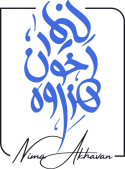Economic and investment consulting
The best choice between scarce and limited resources and achieving maximum efficiency

افراد زیادی در طول تاریخ تعاریف متعدد و جالبی از علم اقتصاد ارائه دادند مثلا آدام اسمیت که در اروپا به او لقب پدر علم اقتصاد داده اند اقتصاد را علم ثروت مینامد، از نظر او اقتصاد علمی است که تولید، مصرف و توزیع ثروت را بررسی میکند- آلفرد مارشال اولین اقتصاددانی است که مسئله رفاه را در علم اقصصاد مطرح کرد، او هدف علم اقتصاد را رفاه انسان و ثروت را وسیله ای برای رسیدن به این هدف میدانست- لودویک وان میزز علم اقتصاد را منطقی برای اتخاذ تصمیمات عقلایی (چه در شرایط کمیابی و چه در شرایط فراوانی) میداند و در نهایت از نظر کارل مارکس اقتصاد علم مبارزه با فقر است ولی به نظر خودم یکی از بهترین تعاریف متعلق به آقای ساموئلسن است که اقتصاد را عمل انتخاب میداند بدین مضمون که این علم چگونگی استفاده مردم از منابع کمیاب یا محدود تولید مانند زمین ، نیروی کار، تجهیزات و دانش فنی برای تولید کالاهای گوناگون و توزیع این کالاها بین افراد جامعه جهت مصرف را مطالعه میکند.
یک سیستم اقتصادی صرف نظر از نوع آن باید بتواند به سوالات زیر پاسخ دهد:
۱- چه کالا و یا چه خدماتی و به چه مقدار باید برای ارضای نیازهای افراد تولید شود؟
۲- چگونه این کالاها باید میان افراد توزیع شوند؟
۳- تشکیلات و سازمان تولید به چه نحوی باید باشد و چگونه طراحی شود و بطور کلی کالاها یا خدمات چگونه باید تولید شوند؟
۴- ایا کلیه منابع تولیدی مورد استفاده قرار گرفته است؟
۵- چگونه باید قدرت تولید را حفظ کرد و آن را افزایش داد
As an economic and investment consultant, my job is to help organizations make the best choice of production resources and also answer the above questions so that an individual or an organization can ultimately answer the following two questions:
1- How does an individual allocate their limited resources, such as budget, time, resources, etc., between different goods and services to achieve their goals, which is maximizing utility
2- How does a firm spend its limited resources, such as the amounts it has to purchase factors of production, on using factors of production to achieve its goal, which is maximizing profit
A business consultant, by knowing the generalities of macroeconomics and microeconomics, as well as its synergy with other skills and knowledge required by businesses, helps them make the best choices according to economic conditions to achieve maximum efficiency from investment. The economic and investment consultant, taking into account the amount of investment and the investor’s risk tolerance, identifies investment opportunities by evaluating financial and non-financial risks and introduces the best investment opportunities around productive or non-productive investments or a portfolio of investments. In order to increase his efficiency, the economic and investment consultant needs the skills and knowledge of analyzing financial statements as well as technical and fundamental analysis to be able to create the best conditions for the project.
